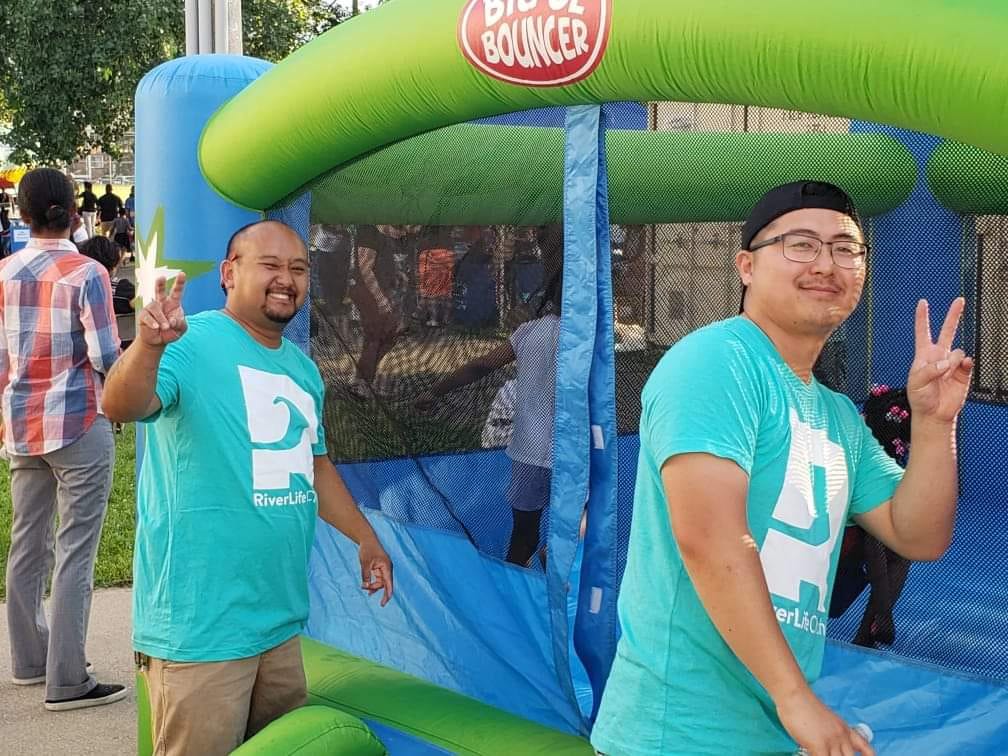How to Make Better Decisions: Start with Yes
Is your church, board, or ministry team known for saying "no"? Try this refreshing approach to decision-making and become a ministry known for saying "yes" to great ideas.
Church boards have gained a notorious reputation for being known to reject new ideas, risky ventures, and even seemingly harmless proposals, like a youth pastor wanting to skydive into the Easter service. This reputation has discouraged many young leaders and ministries from proposing new ideas altogether. The fear of rejection has led to a lack of innovation and creativity in the church.
A Better Way to Make Decisions
As many of our leaders at RiverLife had come from churches like this, I wanted to create a different approach to decision-making. I wanted our church leadership to be recognized for saying "yes" first instead of saying "no" or considering why an idea may not work.
This led me to develop a process that I call "Start with Yes." Here's how it works:
When presented with a new idea, start by saying "yes" rather than rejecting it or immediately thinking of obstacles.
Next, make a list of all the obstacles that need to be addressed to make the idea a reality, regardless of how simple or complex they are. Try to break them down into smaller tasks.
Then, tackle the first obstacle and determine if it can be overcome. Often, the first one is the easiest. If it can be resolved, move on to the next one.
Continue with this process until you have addressed all the obstacles or until you encounter one that cannot be overcome.
If you have done everything in your power to find a solution and still cannot overcome the obstacle, then and only then should you say "no" to the idea.
A Real-Life Example
The neighborhood's community center requested to borrow one of our inflatable bounce houses for a Halloween event. Initially, the person who received the call hesitated to say yes, so I suggested applying the "Start with Yes" approach.
We began by identifying the barriers to granting this request, which included:
Does this align with our Community Engagement ministry strategy and philosophy?
Are we comfortable supporting a Halloween-themed event?
How can we prevent damage to our bounce house?
Should we assign one of our own staff to manage the bounce house? If so, who would that be?
We then proceeded to discuss each point and find feasible solutions for them. Here are the outcomes we arrived at for each obstacle mentioned above.
Yes, this aligned with our Community Engagement (CE) ministry. The goal of our CE ministry is to collaborate with local organizations, mainly within our neighborhood. Furthermore, we aim to establish the church as a valuable asset to the community.
We were not concerned about our bounce house being used for a Halloween event. In fact, one of our largest family events every year is a costume party after church on the Sunday preceding Halloween.
The question of protecting our property was a valid one. Community events can involve some rough play by unsupervised kids. To ensure that our inflatable wasn’t damaged, we sent one of our volunteers to the event to manage the bounce house.
However, we faced a challenge in finding someone to manage the bounce house that evening. Despite our efforts to find a volunteer, we could not overcome this obstacle. Therefore, we regretfully had to decline the community center's request. Fortunately, one of our volunteers stepped forward the day before Halloween and managed the bounce house, much to the delight of the neighborhood kids.
Implications for Your Ministry
At this point, I know some of you are thinking, “That sounds good, but I don’t run our board. They’ll still say no to most of our ideas.” That might be true, but if you are in leadership, then you make decisions—either solo or part of a team. You can implement this strategy at any level. Although you might not have control over how your church's board makes decisions, you can change how you and your team approach decision-making.
I love this strategy because it encourages creativity, inspires hope, and welcomes new ideas. It transforms leaders into people who make things happen instead of shutting them down. Furthermore, it creates a positive and inclusive environment among your team and avoids the negativity that often comes with years of ministry.
So, say YES to the next proposal that comes your way and work together to make it happen.




